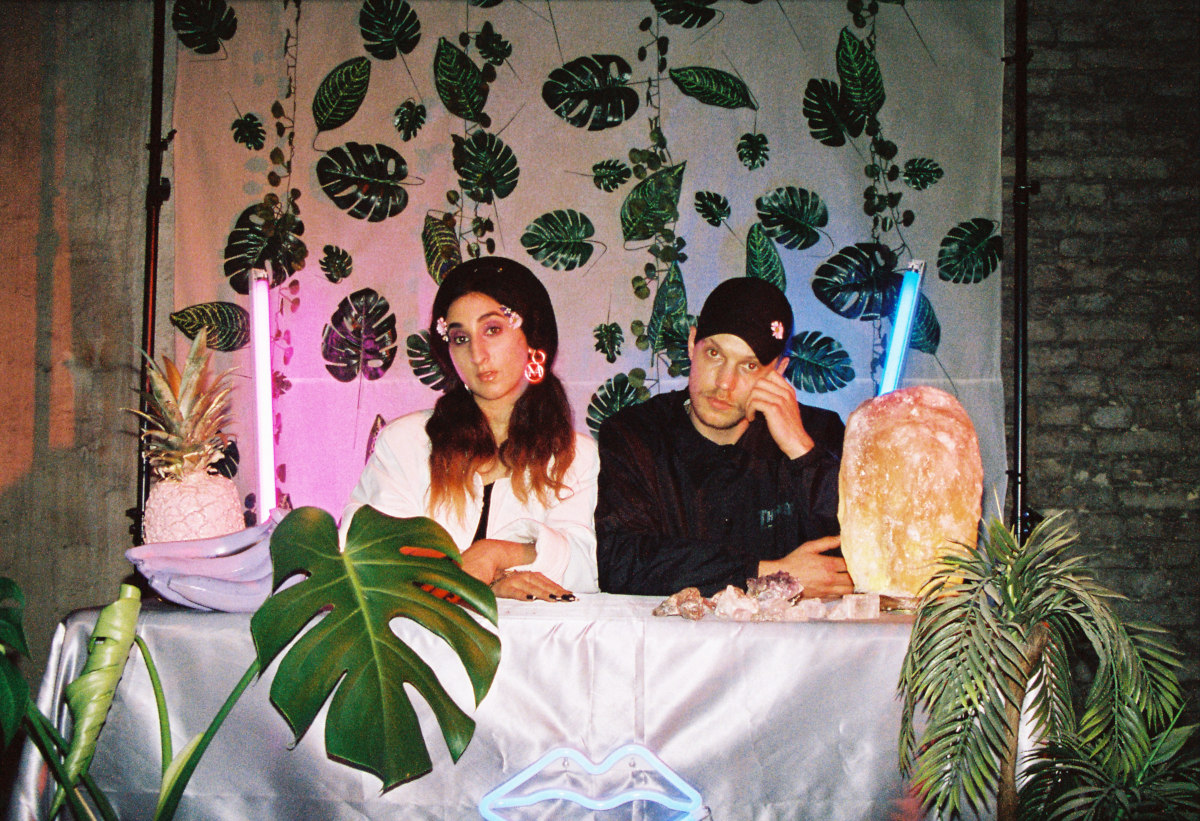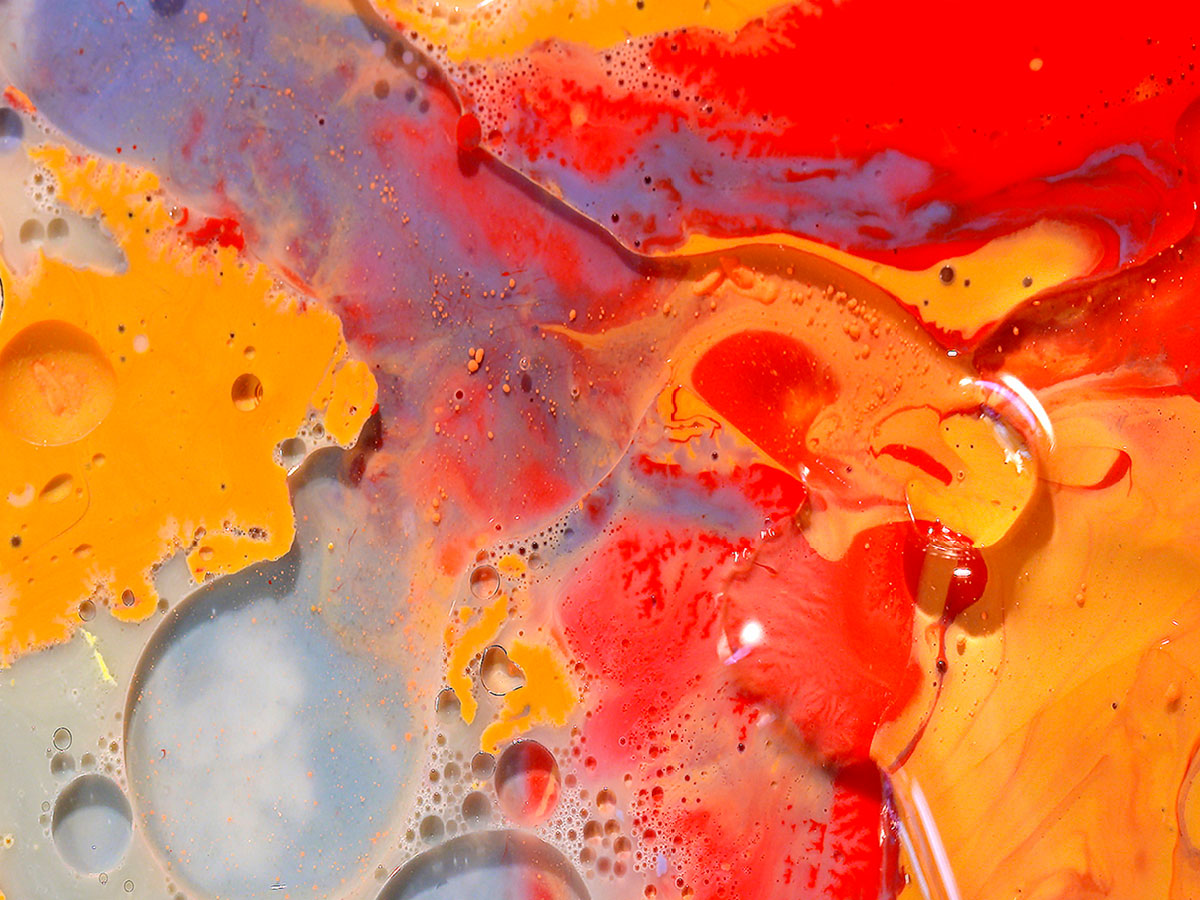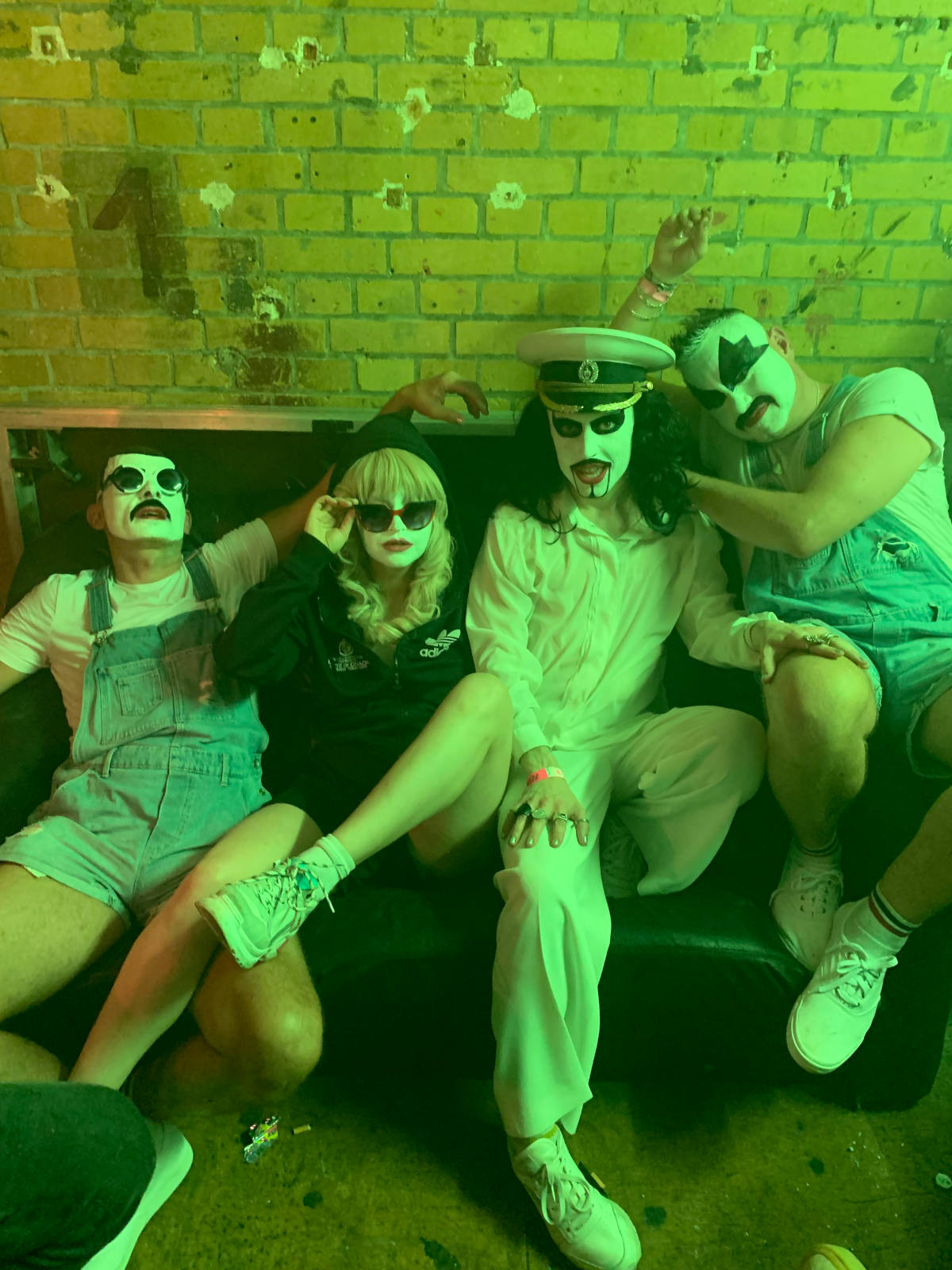With our interview series »10 Questions With…,« we would like to introduce you to a number of bands and artists from this year’s Pop-Kultur programme who definitely deserve a place in your playlists and hearts. After SADO OPERA last week, it’s now the turn of MADANII & LLUCID.
- How did you get to know each other and what was your motivation to make music together?
MADANII: We found each other by accident, more or less. I asked for recommendations for good headphones in our university Facebook group and LLUCID got in touch. The next day, I asked around if there was someone who’d like to join me in working on MADANII and again nobody else but LLUCID reached out. Since we already knew each other and since he had heard my cover of Beyoncé’s »Sandcastles« on Soundcloud and liked it, we just went ahead and did it.
- Your music is stylistically varied and versatile, so you certainly have a lot of different influences. What’s the lowest common denominator between the two of you – which artists, albums and songs can you fully agree on?
LLUCID: Glad you’ve asked! We’ve just recently created a playlist with all our favourite tracks. It’s called MiiLLkshake! I think that, over the past three or four years, our tastes have converged a little. Of course we have our personal favourites and genres, but we both dig artists like FKA twigs, Hiatus Kaiyote or Col3trane!
- Your tracks are both club-ready and radio-friendly. Where and in what situation do you think your music should ideally be listened to?
MADANII: Ideally wherever and whenever people want to listen to it! That differs from person to person.
- MADANII includes traditional Persian elements in her singing, which sometimes is also reflected in the music itself. Why do you combine these traditional sounds with an otherwise very contemporary aesthetic?
MADANII: One question that made me start MADANII was: why can’t classic Persian elements be part of a contemporary sound? From the very start, we wanted to include those elements as a means of expression by itself rather than as »exotic« foreign matter. Pop-music is dynamic and can take on different forms of expression. Integrating the musical elements of my Iranian heritage into our music is not at all a contradiction for me.
- In your single »Sober« for example, you work with the »Jāne Maryam« folk song. Which function does the piece, used as the intro to the song, serve?
MADANII: Folk songs are the most formative connection that I have with Iran on a muscial level. »Jāne Maryam« for example belongs to the most popular and well-known of these songs and you’ll hardly find an Iranian who does not know it. When we were working on our »IILLEGAL ALLIIEN« EP, I was singing »Jāne Maryam« one evening. After playing around with the recording for some time, we ended up with »Sober.« It only made sense to include that part of the folk song, since it formed the basis of the song!
- Your videos are quite elaborately done. Why does the visual component play such a big role for you?
LLUCID: We just love to be creative and that includes the visual level. And we’re not only talking about the videos, but also the artworks, photos, and our merch. It allows us to highlight the message of each individual song and it can also give a new meaning to the tracks, which helps us to convey our vision to the audience. Planning and shooting videos takes a lot of effort, especially as a cash-deprived indie artist. But that’s how we get to know a lot of other creatives and this kind of exchange is awesome. The different renditions of our songs by others and the results of those have again and again surprised us.
- »WVTERWINE« uses Christian iconography and plays with Catholic practices that at first seem to contradict the overall tone of the music. What was the idea behind the video?
MADANII: »WVTERWINE« ist about the power dynamics and how they are being submitted to. That can include general social structures, the dynamics within a relationship or even institutional religion. The Christian iconography is the most recognisable in the Western world in which we are situated, too. That’s why we saw in that the most effective possibility of picking up our message visually, since already the lyrics are playing with Christian symbolism. That’s however just one of several elements meant to express and visualise the power dynamics in our society. Also, related topics like the patriarchy and our dependence on technology are being addressed in the video.
- Your debut EP’s title is »IILLEGAL ALLIIEN« and can be understood in different ways. Which topics informed the song?
LLUCID: We were very aware of the fact that the title can be understood in different ways and that’s precisely what wanted. Everybody knows these kinds of situations in which they feel like they do not belong and how those can look quite different from one person to the next. The focus of the songs lay on the social and personal ones. »WVTERWINE« picks up on social problems, while »Sober« is about the feeling of getting lost in everything you’ve burdened yourself with, overworking yourself, and losing control
MADANII: At the same time, my experience growing up as a person of colour in Germany is reflected in both the lyrics and the music. The Iranian elements, like for example my parts in Farsi on three of the seven tracks, may result in the EP being considered an »IILLEGAL ALLIIEN,« so as something foreign and maybe even unwelcome. It thus serves as a reflection of the norms in for example the music industry.
- What can we expect from your contribution to Pop-Kultur this year?
LLUCID: Definitely some new music! We are currently working on our new EP which is due to come out in September and we are already looking forward to presenting some of the songs at Pop-Kultur.
- What do you wish for the future of this world?
LLUCID: A more conscious interaction with this world and everything that lives on it.




